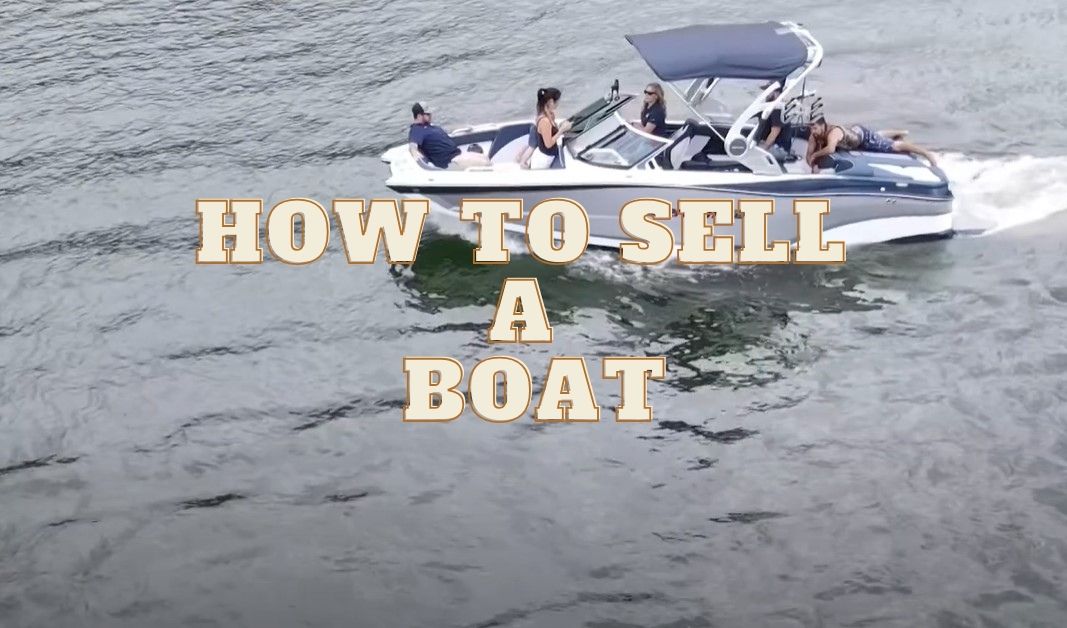Selling a boat can be an intricate process, but with the right strategy and preparation, you can navigate this journey smoothly. Here’s a comprehensive guide to help you sell your boat effectively.

Preparing Your Boat for Sale
Clean and Fix
The first step is ensuring your boat is in top condition. This involves thorough cleaning, inside and out, including less visible areas like stowage compartments. Fix any broken or malfunctioning equipment, particularly the engine, as this can significantly impact the boat’s value and appeal to potential buyers.
Decide on Selling Method
You can sell the boat yourself or work with a broker or dealer. While hiring a professional can save time and effort, remember that brokers take a commission, and trade-ins usually don’t fetch the highest possible price.
Pricing Your Boat
Research and Set a Price
Determining the right asking price is crucial. Start by consulting resources like the NADA guides, but also consider the boat’s condition and market demand in your area. Boats used in freshwater, for instance, often fetch higher prices than those used in saltwater. Be ready to adjust your price based on market response.
Marketing Your Boat
Advertise Effectively
Utilize various platforms for advertising, including online classifieds, local newspapers, and boating magazines. A good advertisement should highlight your boat’s best features. Also, consider placing a ‘For Sale’ sign on the boat in a high-visibility area.
Prepare for Viewings and Trials
When a potential buyer shows interest, be ready to show the boat and provide necessary documents like ownership and maintenance records. Honesty is key during these interactions. If the buyer is interested, be prepared for a sea trial.
Finalizing the Sale
Handle the Paperwork
Ensure you have all the legal paperwork ready for the transaction. This typically includes signing over the title and may vary depending on your location.
Negotiate and Close the Deal
Be clear about your bottom-line price before negotiations start. Remember not to reveal your
best price over the phone before the buyer has seen the boat. Finally, once an agreement is reached, ensure the financial transaction is secure and finalize the sale.

The Role of Boat Brokers and Dealers
The Role of Boat Brokers
Boat brokers play a crucial role in the boat-selling process. They act similarly to real estate agents, specializing in selling new or used boats. They can represent either the buyer or the seller, with the seller typically paying their commission. Brokers can save sellers time and effort by handling many aspects of the sale, though this comes at the cost of a portion of the sale proceeds.
The Role of Dealers
Dealers offer another avenue for selling boats, especially through trade-ins. If you’re purchasing a new boat from a dealer, trading in your current boat can be convenient. However, it’s important to note that trade-ins may not yield the highest possible return compared to selling the boat independently.
Advantages and Challenges
Both brokers and dealers provide a more straightforward selling experience than selling a boat privately. However, this convenience comes with its own set of challenges. Brokers take a commission from the sale, and trade-ins typically offer lower financial returns than private sales. Additionally, working with these professionals requires trust and due diligence to ensure a fair and effective sale.
In conclusion, selling a boat involves multiple steps, from preparation and pricing to advertising and finalizing the sale. Whether you choose to sell privately, through a broker, or via a dealer, understanding each step of the process is key to a successful transaction.

Leave a Reply